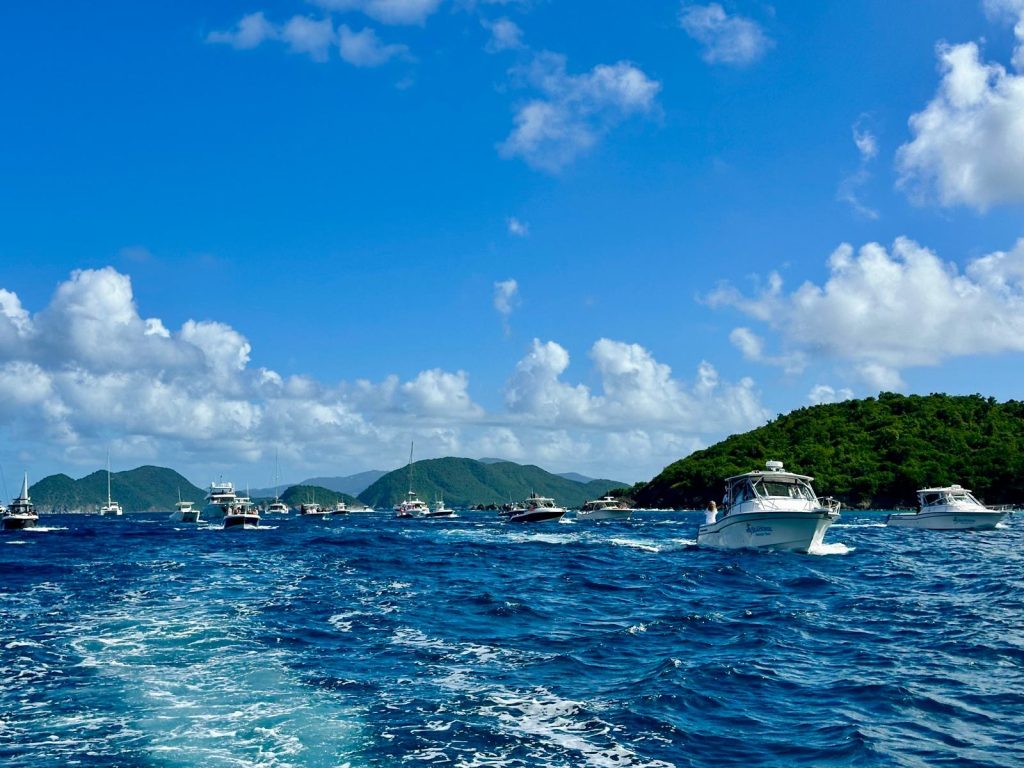By Jessica Graves
A fatal collision near Saba Rock in the British Virgin Islands has raised serious concerns over
maritime safety and crew accountability, especially as a key hearing approaches for first officer
Lesley Joubert of the motor yacht Eau La La. Joubert, a 36-year-old South African national,
faces a manslaughter charge following the death of Stephen Cross Jr., a respected American
captain and longtime resident of St. Thomas. The incident has exposed significant gaps in
maritime safety enforcement, particularly in high-traffic areas like North Sound, Virgin Gorda,
where vessels frequently exceed speed limits in no-wake zones. In addition, questions have
arisen about the emergency response protocols, highlighting a critical need to overhaul
outdated maritime regulations worldwide.
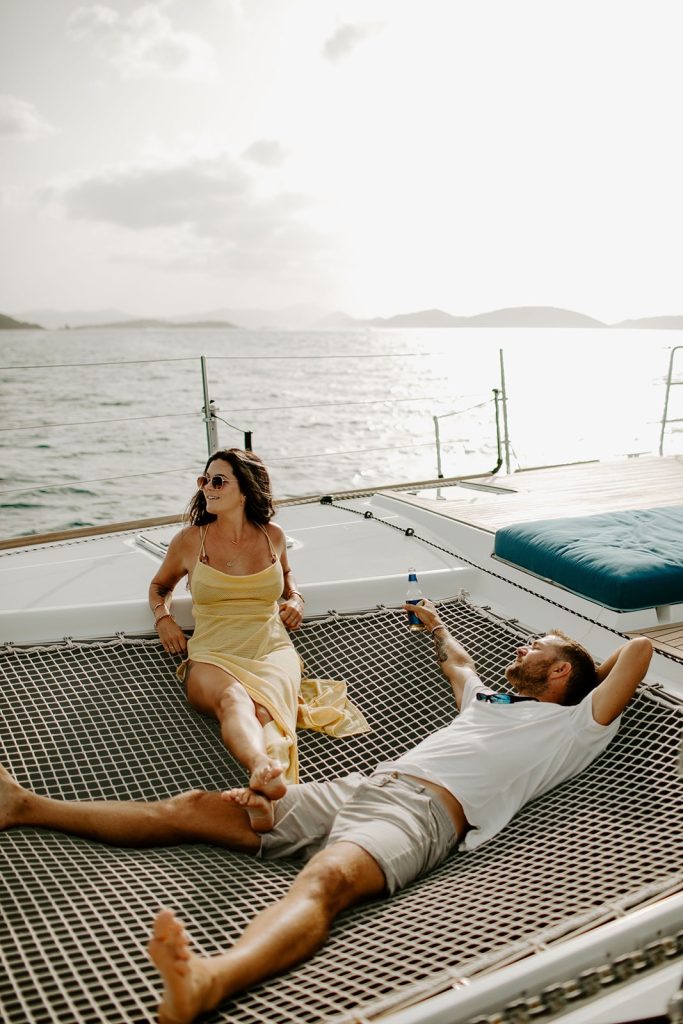
On the night of November 22, 2024, Cross was piloting a 12’6″ dinghy with six charter guests on
their way to dinner at Saba Rock. As he navigated the no-wake mooring field, disaster struck when a 21-foot rigid-hulled inflatable boat (RHIB) from Eau La La, operated by Joubert, approached at a high speed—well over the five-knot speed limit in the area. Eyewitness Dontre Antoine told investigators that he saw “a black inflatable dinghy with no lights run through a gray inflatable dinghy” without stopping. Charter guest Nicholas Morana, who was on Cross’s dinghy, confirmed the statement, saying that Eau La La’s tender was “traveling about 25 knots” when it
“ran over them from the rear” and continued on its way, leaving all seven passengers in the
water.
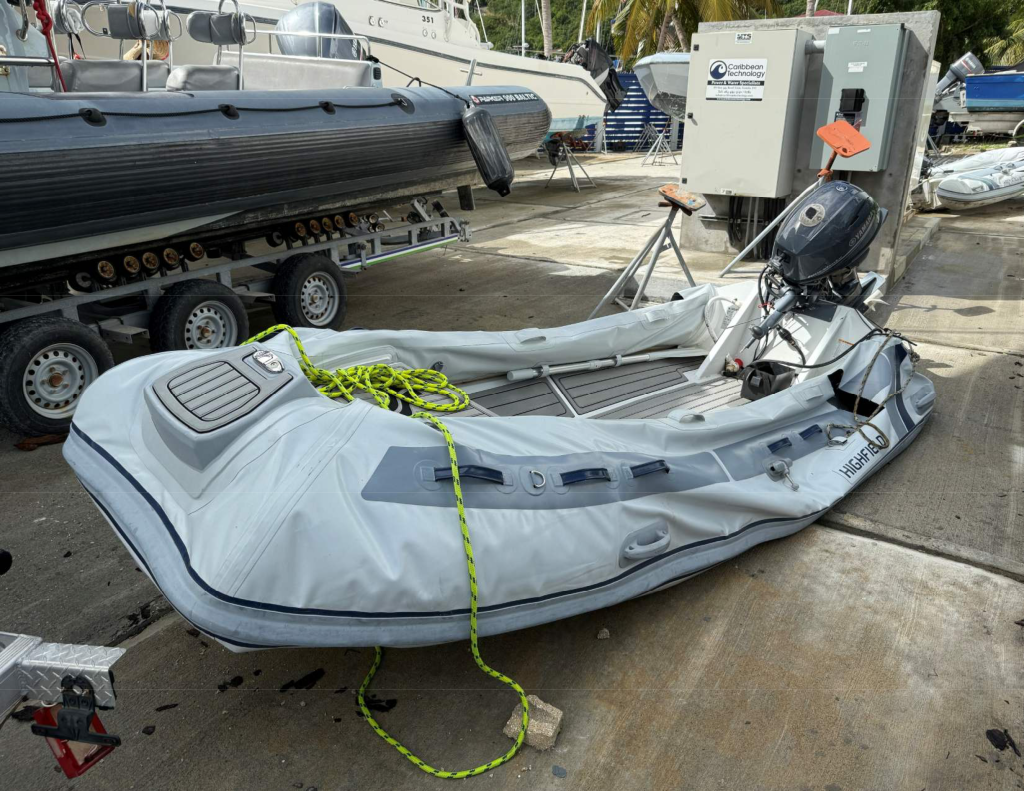
Despite Cross’s attempt to maneuver, which likely saved the lives of his guests, he sustained catastrophic injuries, including multiple rib, femur, and pelvic fractures, along with a collapsed lung. Several nearby vessels responded quickly, pulling Cross and his passengers from the water. However, crucial time was lost in the emergency response. Joubert, who initially
continued operating the RHIB after the collision, did not stop immediately to offer assistance.
The timing of when Joubert alerted his captain remains unclear, but his failure to coordinate an
immediate response delayed vital medical care. “I get it, he was young and inexperienced and
got scared and ran,” says Captain Vince Lauro, a St. Thomas veteran. “But the way you react is
what makes the difference.” Lauro adds, “The captain should’ve gone back to the scene of the
accident, found the victim, and ensured they received proper medical treatment.” He
emphasized that a quicker response could have saved Stephen’s life. “Puerto Rico would’ve
had a helicopter in 20 minutes,” Lauro notes. Instead, Cross was transported first to the Nurse
Iris O’Neal Clinic on Virgin Gorda and later transferred to Dr. Orlando Smith Hospital on Tortola,
where he was pronounced dead at 10:22 p.m.
Christopher Winschell, the general manager of Saba Rock, recalls the chaos that followed the
collision. “It happened right in front of Saba Rock. My manager called 911 immediately, and I
was her second call.” As witnesses helped Cross and his guests, Winschell sat with Joubert
while they waited for law enforcement. “He was visibly shaken,” he recalls.
The waterway where Cross was struck is notorious for being a high-risk area. “There have been
more incidents than you can count,” says Captain Lauro. “And the islanders haul ass
everywhere they go in cigarette boats.” This blatant disregard for the no-wake zone, particularly
outside Saba Rock, has raised serious concerns within the maritime community. The lack of
enforcement in such a congested area has prompted calls for more surveillance to detect speed
violations. Winschell is hopeful that, if anything positive can come from this tragedy, it will be the
wake-up call needed to increase monitoring and enforce stricter speed limits.
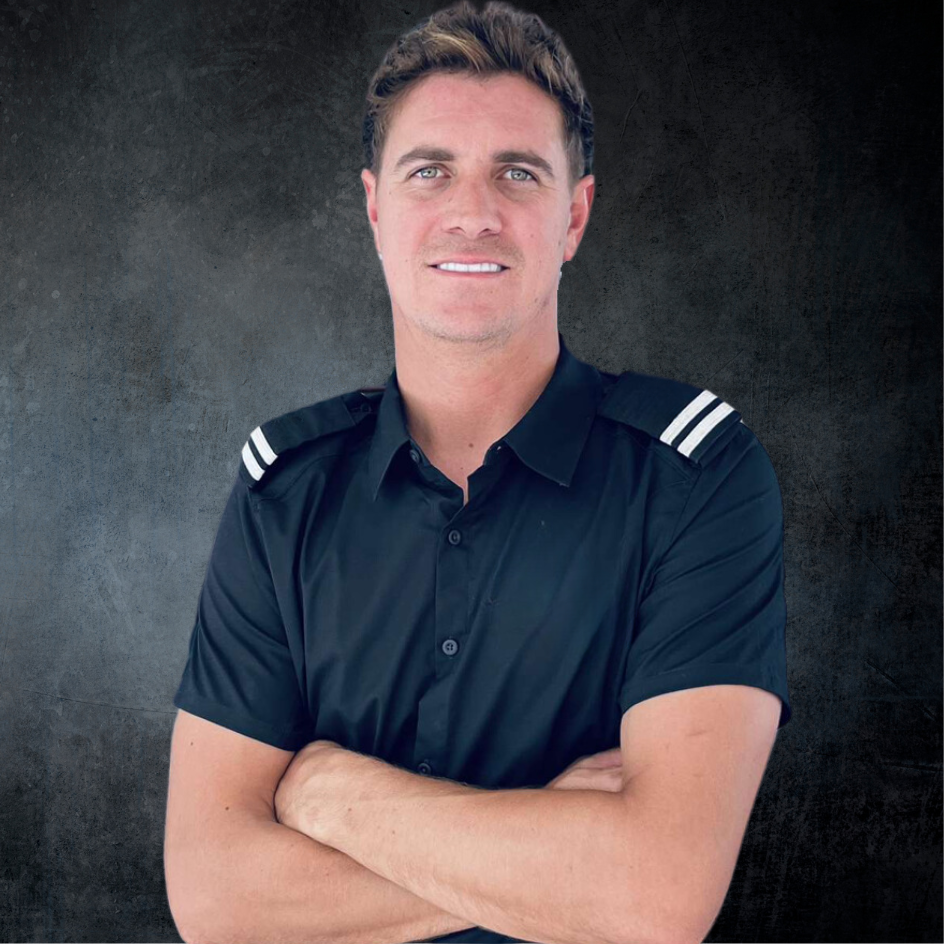
As the second hearing approaches on March 31, the focus is shifting beyond just determining the cause of the accident to addressing its aftermath. Attorneys for both sides are gathering evidence, while industry insiders are questioning the absence of a standard emergency response protocol to aid crash victims. This lack of clear procedures—particularly in high-risk areas like North Sound—highlights a much larger issue of safety oversight in the maritime
industry.
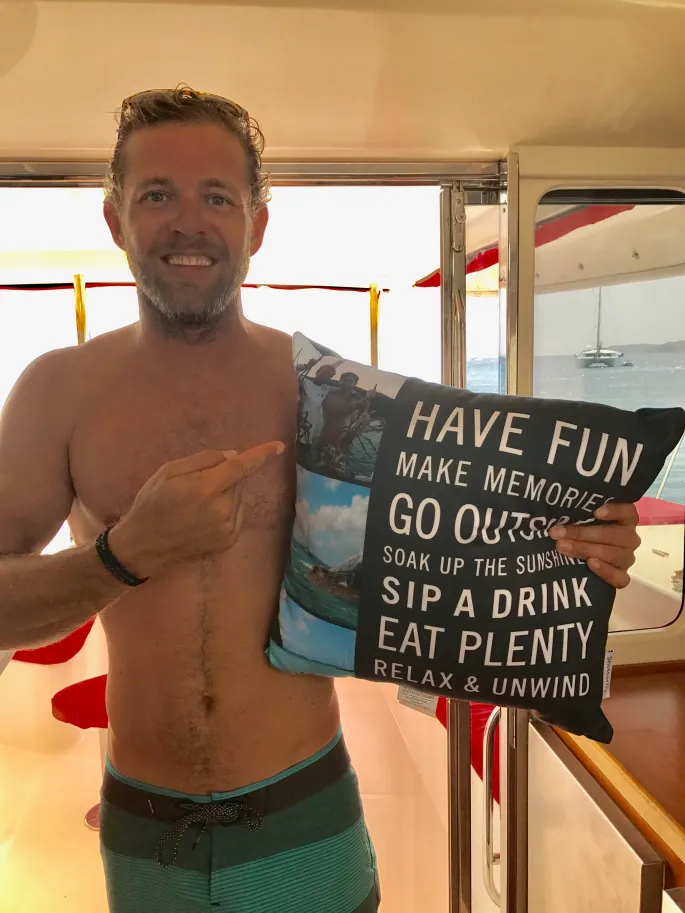
Ryan Rabatin, VP of Yacht Compliance at Dayboard Yacht Solutions, explains that Eau La La,
like other vessels under 500 gross tons, is not required to follow SOLAS (Safety of Life at Sea)
regulations, which mandate comprehensive safety protocols. “We have yachts that are 300
gross tons or more operating just below the SOLAS threshold,” he says. “All charter yachts are
required by their Flag State to implement a mini-ISM system. While this scaled-down version of
the International Safety Management (ISM) Code was designed to provide smaller yachts with
basic compliance guidance, we are seeing that it is no longer sufficient. SOLAS sets life-saving
standards but only applies to vessels over 500 gross tons, leaving Eau La La—like many other
charter yachts—exempt from critical third-party oversight and compliance requirements.”
Rabatin emphasizes that this needs to change, as more charter vessels continue to operate
under the 500 GT threshold, regulations remain largely unchanged since their introduction after
the Titanic disaster in 1914. A major flaw in the system, he notes, is that vessels are often
intentionally built just under 500 gross tons to avoid SOLAS compliance, despite the fact that
their safety systems should meet the same standards. “There’s no difference between 499 and
500 gross tons when it comes to safety,” Rabatin states. “We have reached a point where the
mini-ISM system needs to be re-evaluated and strengthened to include more detailed onboard
operating procedures and documentation requirements. Most importantly, there should be a
flag-certified third party providing ongoing oversight and ensuring compliance with the
convention’s safety standards for commercially operated yachts. While Flag States are doing a
good job enforcing the requirement for mini-ISM systems, more needs to be done to establish
better checks and balances for charter yachts—ultimately elevating safety for everyone.”
A Captain’s Legacy
Stephen’s passing has left an undeniable void, particularly among those who knew him
personally. Caitie Rosko, his fiancée and the woman he was set to marry in April 2025, speaks
of Stephen with deep admiration. “He was the best person to do life with,” she says. “We loved
“taking our time,” savoring each moment, because there was never any rush. The joy was in
looking forward to the next steps of life together. I’ll always treasure that about us—the way we
could be fully present, in the moment, knowing we were building something beautiful with each
passing day never rushing to an imaginary finish line.” Stephen lived by the simple but powerful
motto: “Slow is Pro.” Caitie explains, “Whether he was navigating the waters or teaching
someone to sail, he never rushed.”
Stephen’s passion for life, particularly his love for the ocean, was something Caitie and
countless others shared. “He taught me to free dive, drive and sail catamarans, wing foil, play
golf, hike, fish—you name it. He pushed me to obtain my 100T Master Captain License and to
become a better human being,” she reflects.
Nearly two weeks after his passing, a flotilla, including a U.S. Coast Guard escort, countless
boats in convoy, an airplane fly-by, fireboats, and wing foilers, was organized to bring Stephen
home. “It was such a moving moment,” Caitie recalls. “To see so many boats coming together,
the Coast Guard leading the way, and the respect shown by everyone—Stephen would have
been humbled by it.” Afterward, a Celebration of Life was held in Hilton Head, where Stephen
had spent much of his childhood. Family, friends, and colleagues gathered to share stories,
memories, and reflect on the man Stephen was. “Stephen had many passions—Wing Foiling,
Surfing, Fishing, Sailing, Freediving, Lobstering, Gardening, Hiking, and Golfing to name a few,”
shares Caitie. “But above all, his greatest passion was sharing these experiences with others
and showing them the beauty of the islands we called home. He was a teacher and mentor to
so many. Stephen had a way of making everyone who crossed his path feel his love and
positive energy, and he never let his ego or concern for what others might think hold him back
from sharing his heart.”
Stephen’s legacy will live on through the Stephen Cross Jr. Scholarship, established in
partnership with the Sea Corps Foundation. This scholarship aims to support aspiring American
mariners, ensuring they receive the training and certification necessary to navigate the waters
safely and responsibly. “For those of us who had the privilege of calling Stephen a friend,
captain, or colleague,” says Jesse Clinton, yacht captain and co-founder of Sea Corps, “his loss
has instilled in us a deep responsibility to elevate the standards of our industry and to support
one another on the water, as is the mariner’s code.” The scholarship will place a strong
emphasis on safety training and ethical seamanship, reinforcing Stephen’s core values of “Slow
is Pro.” It aims to not only train competent crew members but instill a mindset of responsibility,
professionalism, and safety in the maritime industry.”
Stephen’s passing has left a lasting mark on the yachting world, with the spotlight now on first
officer Lesley Joubert, who faces a manslaughter charge. However, the ripple effects of this
tragedy extend far beyond this case. With high-traffic areas like North Sound becoming
increasingly congested, the need for better surveillance, speed limit enforcement, and stronger
oversight is more pressing than ever. This incident has sparked wider discussions about the
gaps in current regulations and the urgent need for reform.
The maritime community is watching closely as the legal proceedings unfold, hoping that this
tragedy will lead to meaningful change. What happens next will determine whether the industry
can truly address the risks and responsibilities that come with working on the water.
